Meet the Inspirational Woman Behind the Stand Out Brand, Neo Walk
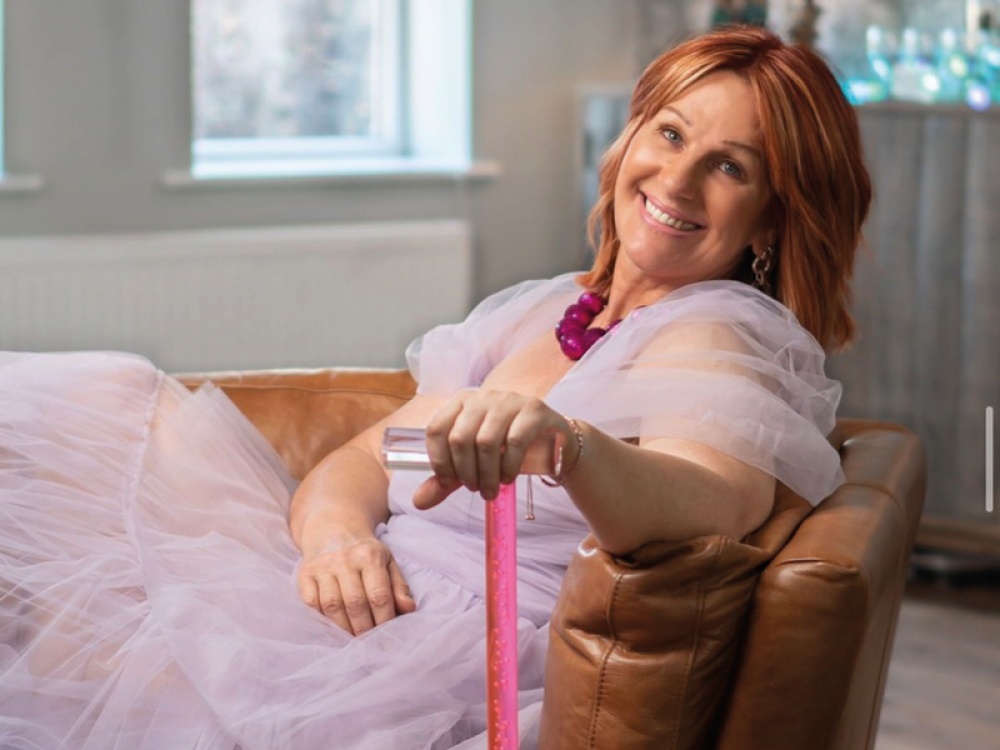
In 2007, Lyndsay Watterson was recovering from an amputation following MRSA. Today, the dazzling array of walking sticks designed and made from her back garden regularly grace Hollywood red carpets and have never been more in demand
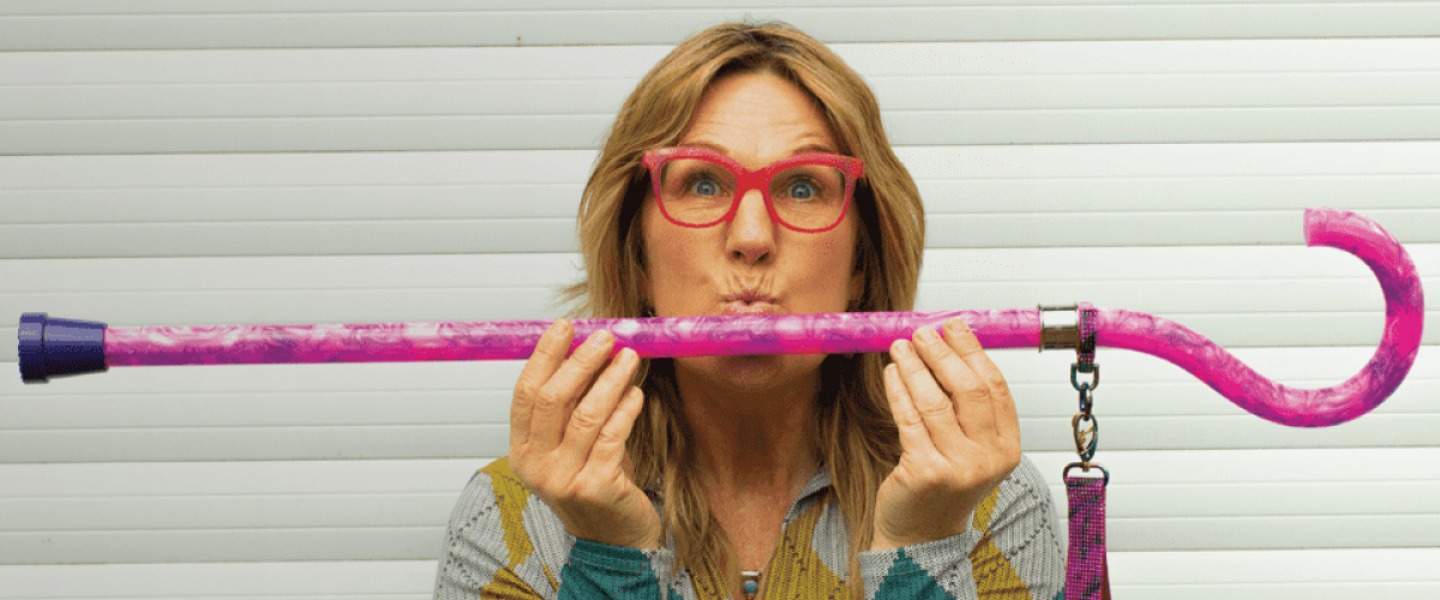
After Lyndsay Watterson elected to have an amputation in 2010, you might expect that a quieter life would follow. For Lyndsay it was just the opposite. In 2007 she contracted an MRSA infection in hospital and, although doctors had managed to save her leg, she couldn’t use it. 'I couldn’t bend it, I was in a wheelchair anyway because it was too painful to walk on. [The amputation] allowed me to start using a prosthetic leg, which was absolutely brilliant. I was such an active amputee with my prosthetic, walked really well, it just gave me my life back. Then I started using a walking stick sometimes because you do, you get tired and sometimes prosthetics are painful. I started using a walking stick, but god they were awful.
‘I couldn’t see anything that reflected me because I was a younger person. I was only 43. So I decided you know what, I’ll just make one myself.’ And, in an anecdote that I still can’t quite fathom (but Lyndsay tells as though it were entirely unremarkable) she heated a stick of acrylic in her kitchen oven, moulded a handle round a wine bottle, and thus unknowingly created the original prototype for her brand Neo Walk.
Lyndsay was thrilled with the sticks she had made for herself. ‘They make you feel confident, they make you feel really stylish because they are so beautiful. It’s like walking with a little piece of art, whereas previously I had felt quite ashamed of what I was using.’
Read More: Meet Laura Pitharas, the Leeds-born Designer Making Luxury Sustainable Womenswear Inspired by Men's Tailoring
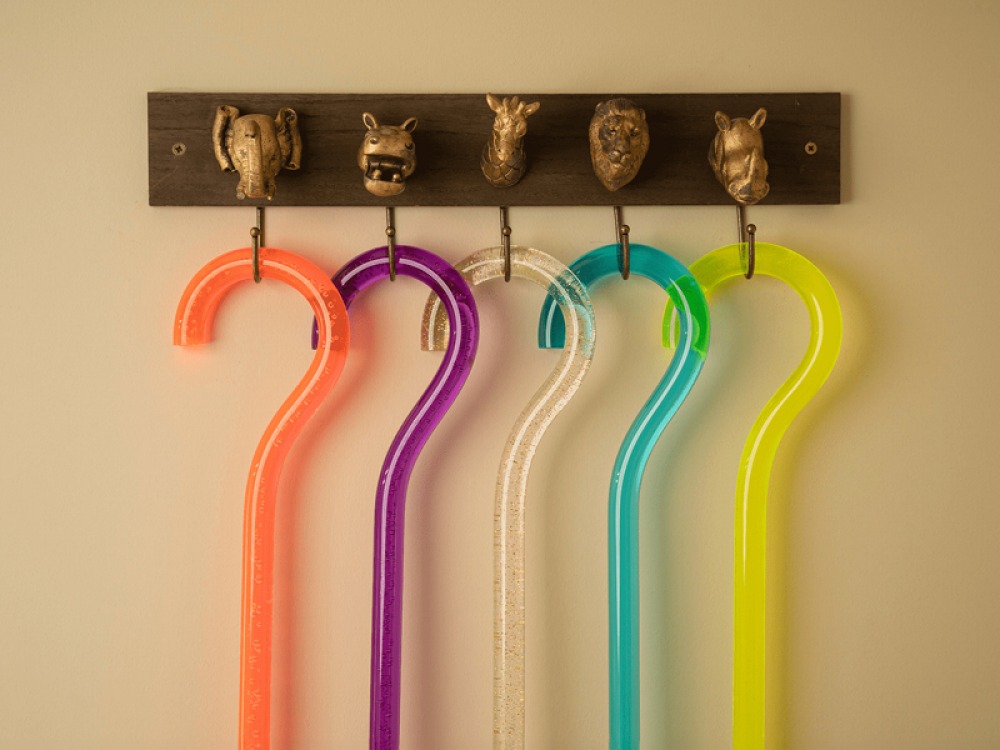
She wasn’t the only one who loved her initial creations, and when her stylish new sticks started attracting attention from passersby, she realised that they could be the solution to another problem she was grappling with as an amputee: work.
‘I knew that as an amputee, finding work was going to be difficult, because being disabled finding work just is hard.’ Initially, the lack of inclusive opportunities in conventional professions led her to performance. ‘I was working for an agency called Amputees In Action. I was a live trauma casualty so I was going along to exercises for the armed forces, for the police, the SAS, ambulance, all the security services. I was a live actor [so] I had a prosthetic, but it wasn’t the kind that you would imagine, it was one that made my leg look like it had just been blown off. And getting to take part in these really, really important exercises, it was one of the best jobs in the world. It was great.’
If that wasn’t unconventional enough, Lyndsay also spent time training to be a circus performer; a pursuit that culminated in a jaw-dropping performance at the opening ceremony for the 2012 London Paralympic Games. Lyndsay dangled from a trapeze attached to a burning (and very much moving) motorbike above the stadium while Coldplay played below her.
Her amazing achievements since 2007 mean that there is a sense in which life without her amputation seems almost unimaginable now.
'I always look back at that and just think I was so lucky to be able to have had that opportunity, and I wouldn’t have had that opportunity if I hadn’t have had my leg amputated. So, you know, you talk about doors closing and windows opening: that’s a prime example really.’
When I point out to her that it takes a pretty remarkable person to pursue opportunities like this, she acknowledges that it was a combination of opportunity and grit that got her there.
Read More: Meet the Bradford Maker Creating Silver Clay Jewellery From Fingerprints
‘I became a yes person when I had my leg amputated because I didn’t know what I was going to be able to do. I had plenty of people telling me what I wouldn’t be able to do. I just thought, stuff this, I’m just going to say yes to anything that comes along. Are you scared of heights? Well let’s find out. It’s a bit like that. I feel so lucky and so blessed that I had all these opportunities and I had the nerve. I had the guts and took the opportunity and I’m so thankful that I did.’
Lyndsay looks back at this period, and the amazing things her body enabled her to do, as some of the best times of her life but she knew that the physical exertion this type of work required would become less sustainable as she got older. With this in the back of her mind, she started selling her sticks as more of a ‘hobby’ than a serious career move. It took off, and by 2019, she decided to go full time. Since then, the business has kept growing: Neo Walk now has five full-time employees, three part-time employees, and they are currently hiring again. They are also in the midst of organising their first international distributors, beginning in America, which already accounts for around half of their sales.
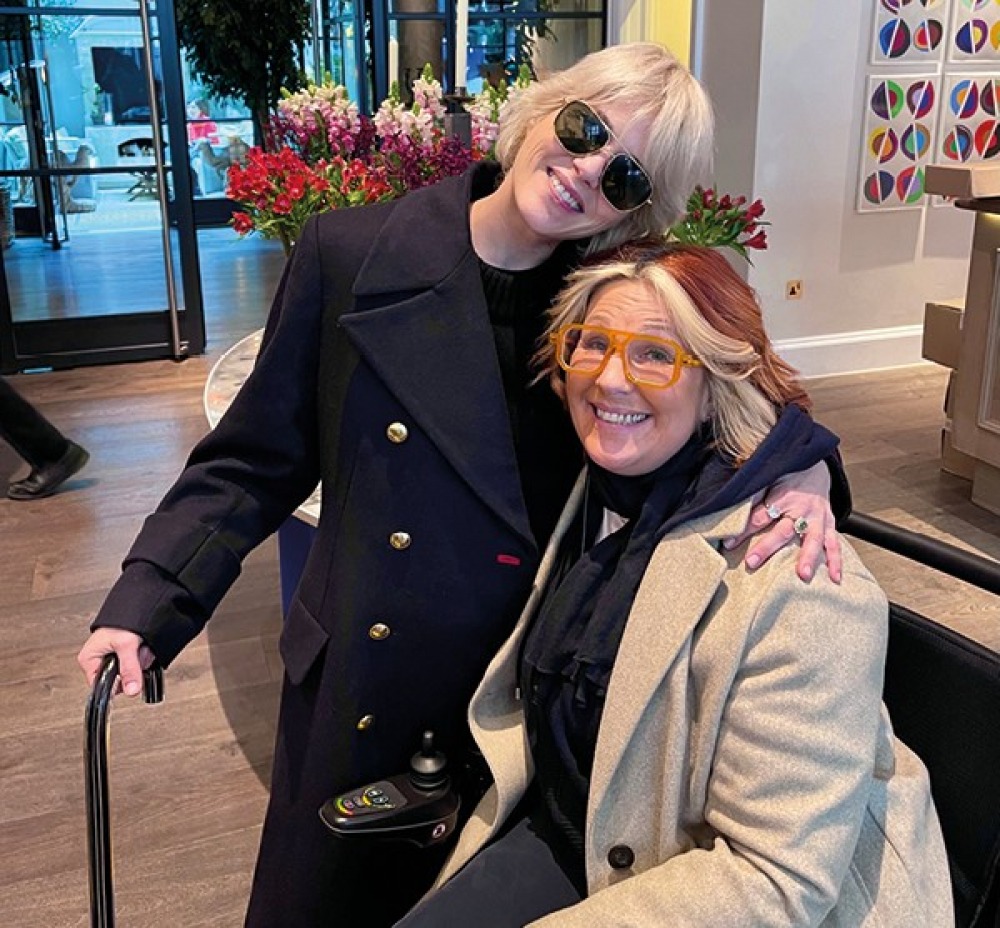
This is partly thanks to the endorsement of Hollywood A-listers Selma Blair and Christina Applegate, both of whom have MS. Selma was the first to bring one of Lyndsay’s creations to the red carpet, with her order popping up in Lyndsay’s inbox entirely out of the blue. Since then she tells me that they have formed a great sartorial friendship, so much so that her sticks will soon be sold on QVC alongside Selma’s own clothing line. The initial enquiry from Christina Applegate’s stylist has also transformed into a collaboration for charity. Together, they designed a transparent stick with a striking black helix shape at the core and a removable tag that reads #FUMS (decipher that for yourself). More importantly, some of the profit from these sticks goes to The Multiple Sclerosis Association of America (MSAA) and MS Society (UK) charities.
Lyndsay jokes that one frustration of working with such high profile faces is that her own portrait tends to be omitted in favour of her glamorous collaborators, whom she dubs ‘the Hollywood ladies’. ‘They [the Hollywood ladies] find it quite funny. I’m like “god you women, what are you doing to me!”’ she laughs. She quickly acknowledges that it can only do good because they’re so visible. ‘They’re representing their community and it can only do good for the community as a whole.’
Indeed, representation of disabilities – or rather the lack thereof – within the media is a particular passion of Lyndsay’s. The focus of Disability History Month this year was young people, and she explains to me that it is particularly important for this age group to see their disabilities represented in the media.
‘Children need to see themselves otherwise they don’t feel they have a value. They feel like misfits. It needs to be worked on now so that we’re giving the next generation as much of a chance to achieve as possible.
‘Because [having a disability] is hard. People don’t expect you to do anything. All you get are the head tilts to one side and they go “awww”. I’m sure people look at me and they go “awww look at her, she’s trying, isn’t that nice”. I get a lot of that. But we don’t want that, that’s not productive. It’s patronising and it’s not fair because we do have a lot to offer and I just think that we have a lot of work to do before that becomes the norm.
‘I would love to see programmes on TV that aren’t specifically for people with disabilities. Why aren’t we just included in the clothing programmes, makeover programmes? We don’t want the special one with people with disabilities – why aren’t we just included in the normal ones? Make it totally inclusive.
‘It’s like on TV programmes now about football, and the pundits. Sometimes they have some of the English women’s team and I think God that’s amazing, they’ve got a lady commentating on men’s football. And that’s a move forward, why can’t we have it in disability? Why can’t we have someone disabled commentating on able-bodied sport? They still have the same mindset, they still go through the same training process, they understand what competing is all about. But they still seek to make it very non-inclusive. It baffles me sometimes.’
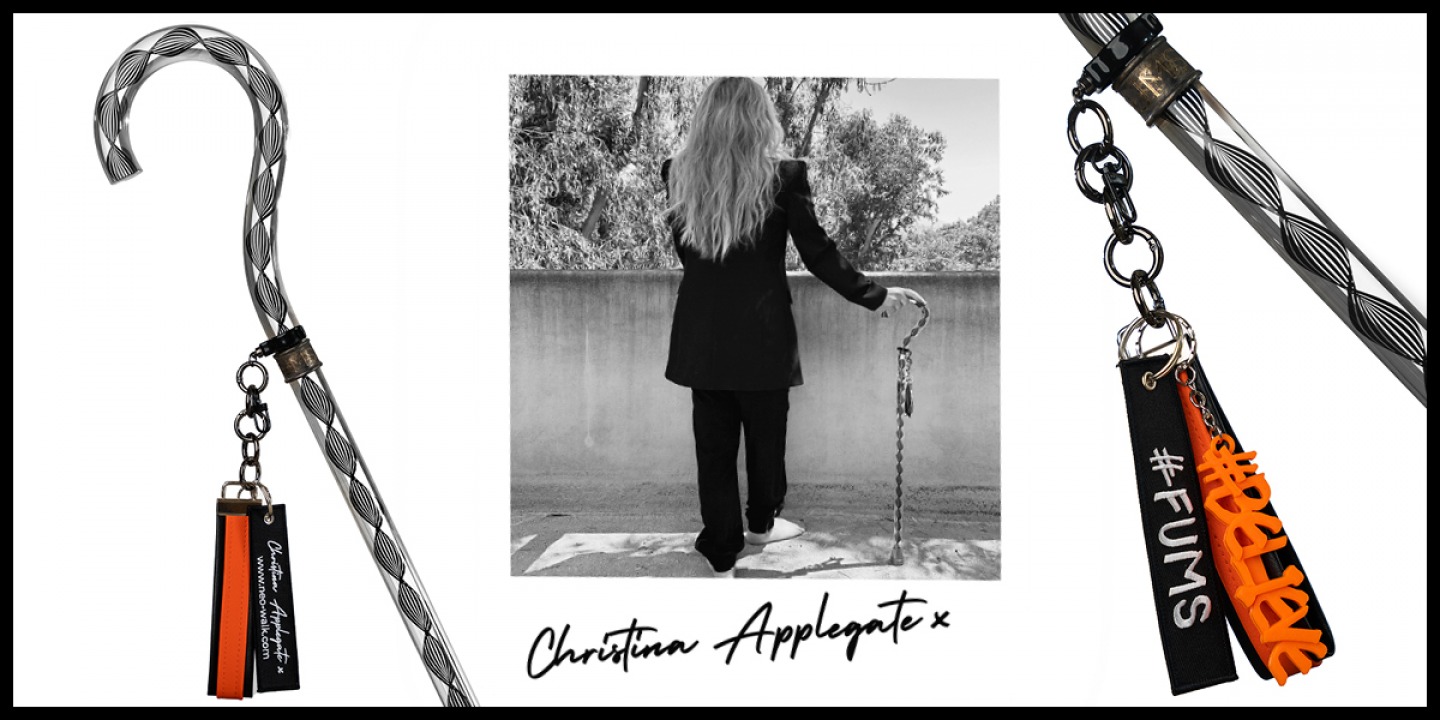
‘I became a yes person when I had my leg amputated
because I didn’t know what I was going to be able to do.
I had plenty of people telling me what I wouldn’t be able to do’
The success of Neo Walk is a case in point for the benefits of genuine inclusivity, not just from an ethical standpoint, but as a profitable business strategy, and Lyndsay’s success has not gone unacknowledged. In September she came out top at the National Diversity Awards, winning ‘Entrepreneur of Excellence’ and in November she was announced as ‘Northern England Business Woman of the Year’ at the National Women’s Business Awards. She found the latter particularly satisfying, because ‘it wasn’t anything to do with disability. It absolutely filled me with joy when I won because I was competing with all these able-bodied people and I still came out on top.’
Read More: We Meet the Founder of Luxury Lingerie Brand Aberdevine
This isn’t to say that the last few years have been without their challenges. Alongside the difficulties faced by any growing business – especially one whose founder is entirely self-taught – Lyndsay’s health has meant that Neo Walk needed to operate slightly differently to most businesses. Lyndsay suffers from chronic pain, which can make leaving the house very difficult, never mind working six or seven days a week to keep the business on track. In a move that gives an entirely new meaning to working from home, the solution she found was to bring the business to her and so she had Neo Walk’s workshop and office built in her own back garden.
‘It’s quite big,’ she assures me. ‘It’s bigger than it sounds and we work in here and if I’m unwell I can still be in the house. They know that I’m there and they can contact me and they can come talk to me, but if I’m just in too much pain and I need to be sort of laid down, then they can still come and contact me.’
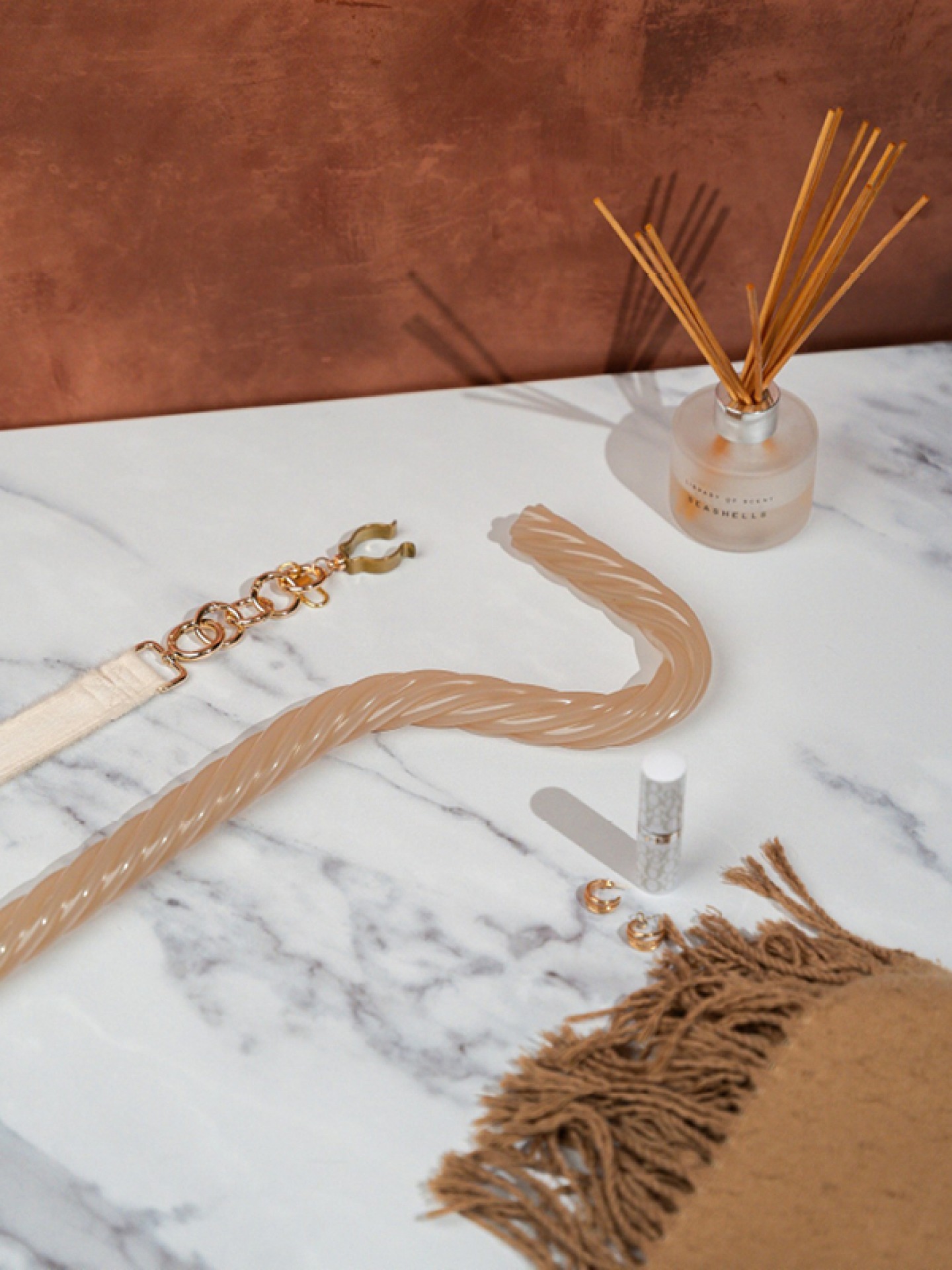
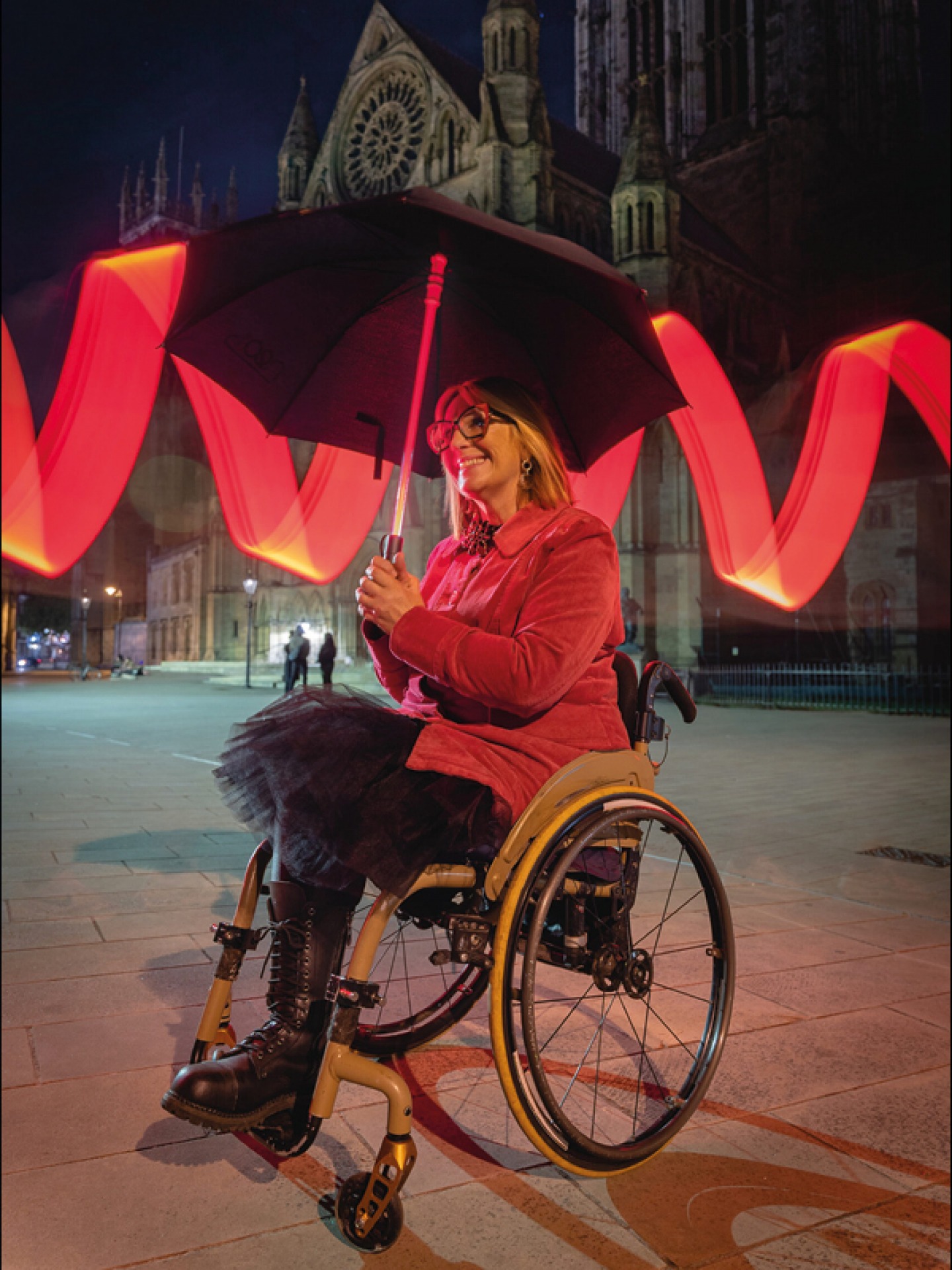
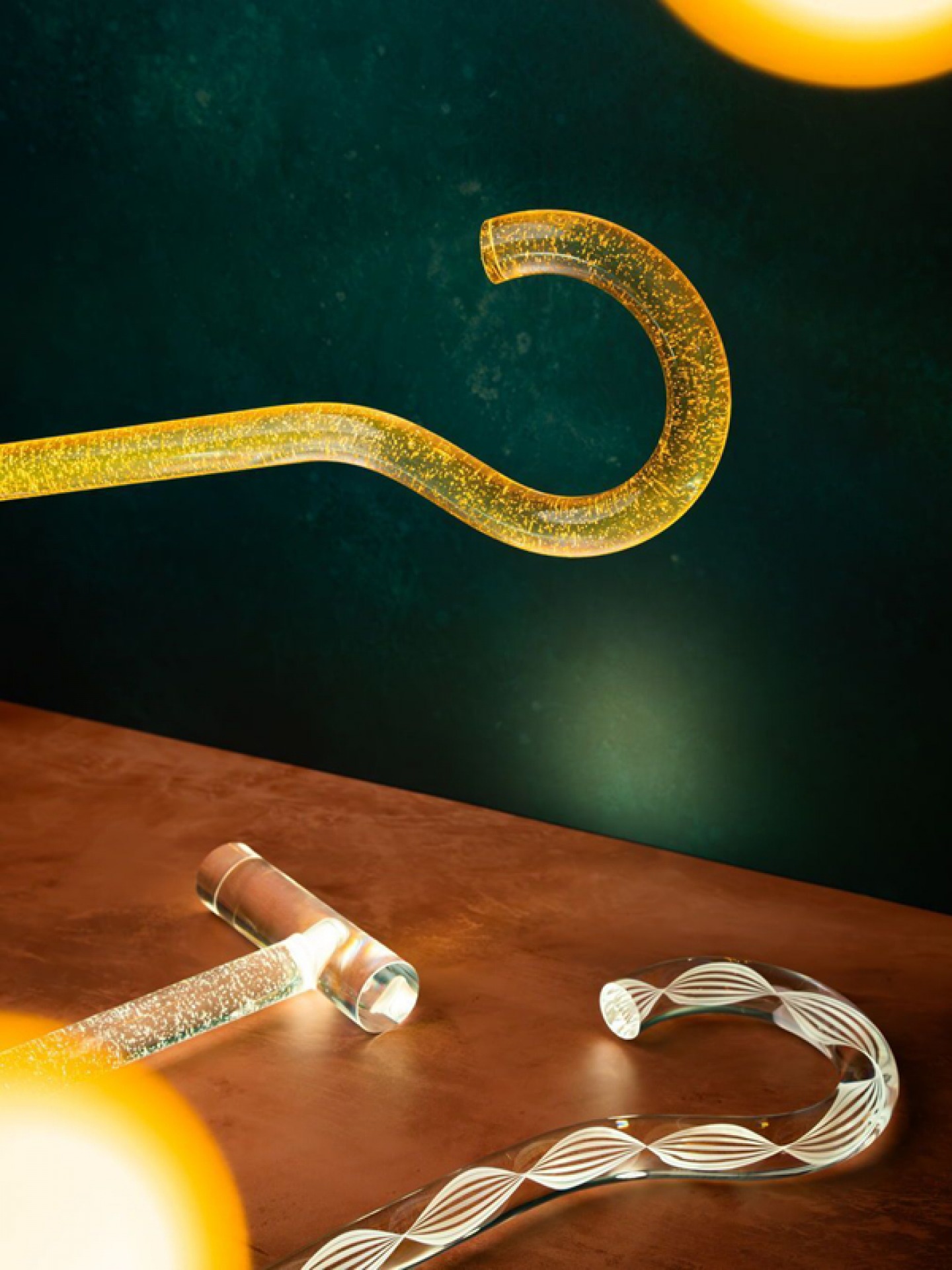
She is quick to credit her team of staff, and their investment in what the sticks represent for their customers, for enabling the business to keep up with the growing demand. ‘I’ve been lucky, someone must be watching me from above because once again I have been very lucky with the people that we have employed. You know, they are 100 percent behind what we are and we really do change people’s lives so each time we send a stick out.’
At this point, and with a team of staff behind her, I wonder why Lyndsay still insists on working so relentlessly. She reassures me that working actually takes her mind off her health problems. ‘I‘d rather be working than not and sitting thinking about the pain that I’m in.’
Finally, I ask her how it feels to see her business thriving more than a decade after she put her first stick in the kitchen oven.
‘I think if Lyndsay from 12 years ago, 13 years, if I could tell her what is happening now, she wouldn’t believe me. Absolutely not. And I think possibly she wouldn’t be ready for it.’
It may have been an unconventional route that got her here, but my parting impression is that Lyndsay Watterson is now ready for anything.
neo-walk.com







